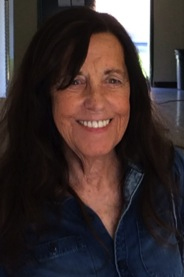
The National Pollution Prevention (P2) Roundtable celebrates the successes of innovators in the areas of pollution prevention and sustainability. After the untimely passing of Ecology’s P2 and Regulatory Assistance Section Manager Ken Zarker in late 2021, the Roundtable renamed one of its Most Valuable Pollution Prevention Awards in his honor. Most recently, the Ken Zarker Memorial P2 Champion Award went to Dr. Katy Wolf for her role in helping Washington state aerospace businesses adopt safer degreasing practices.
The Environmental Protection Agency’s Source Reduction Assistance (SRA) Grant funded the project, one of many innovative and cost-effective source reduction approaches to support and advance pollution prevention activities. Our Hazardous Waste and Toxics Reduction Program collaborated with Dr. Wolf in her capacity as a consultant for the Pacific Northwest Pollution Prevention Resource Center (PPRC), an SRA grant recipient, on the safer alternatives project.
For decades, aerospace parts manufacturing has used halogenated chemicals like 1-Bromopropane (1-BP) in its cleaning operations. The Environmental Protection Agency (EPA) recently noted that 1-BP poses unreasonable risks to human health during the process required by the Toxic Substances Control Act (TSCA). However, without regulatory requirements to drive the effort, reducing or eliminating these chemicals has been challenging. The good news is, thanks to our assistance with facility relations and opportunity identification, facility representatives are very interested in eliminating 1-BP ahead of potential TSCA actions and increased regulations — but employee buy-in is a critical requirement for switching to a safer alternative. That’s where Dr. Wolf and her team at PPRC come in.

Dr. Katy Wolf
With over 30 years of experience focusing on technical P2 projects that involve finding safer alternatives and demonstrating new technologies, Dr. Wolf provided in-depth analysis and tracked progress, costs and benefits, chemical use metrics, and waste reductions. This work ultimately led aerospace businesses to make the switch, eliminating 23,569 pounds of 1-BP, reducing 11,300 pounds of hazardous waste, and saving $60,000 in annual costs. It also demonstrates that buy-in at the facility, vendor, regulatory, and industry level is critical to effecting a process change in a highly regulated industry responsible for complying with numerous specifications. Dr. Wolf exemplifies the ability to solve a complex issue and achieve transformational change by empowering employees and management to invest in innovative ways that protect the environment and improve public health.
Facilities that continue using hazardous chemicals in their manufacturing processes could be causing decades of harm to their long-term operation with future potential regulatory burdens on the horizon. Projects that fund and encourage partnerships with consultants like Dr. Wolf can lead to sustainable solutions and practices that can be shared and replicated nationwide. In Washington state, we are constantly seeking ways to build relationships with businesses, vendors, non-profit entities, and other regulatory agencies to reduce pollution at its source. To get started, reach out to our Toxics Reduction Planner Megan Hillyard at (425) 559-5463 or megan.hillyard@ecy.wa.gov.

